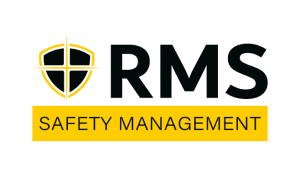RMS hosted an event at our facility recently where a prominent member of the Indiana Department of Laborprovided an update on several OSHA regulations. We would like to share our “CliffsNotes” with those of you who couldn’t make it. Here is a summary of what was discussed:
- FEDERAL OSHA’S NEW DIRECTION: OSHA under the Obama Administration was extremely active with rulemaking. Over the 8-years they passed rules on Cranes, Hazard Communication (GHS), Injury Reporting, Anti-Retaliation, Falls in General Industry, Confined Space in Construction, Electronic Recordkeeping, Silica, Beryllium, and more! They also seemed to be heavily focused on enforcement. This was made evident by publishing high dollar citations (with company names) on their website, wanting to make each company’s OSHA Logs public access, raising the penalty amount, and less involvement with programs like VPP and SHARP. The Trump administration seems to be less interested in passing new regulations and more interested in trying to balance their enforcement and assistance programs. This has been made evident by President Trump’s directive stating “for every one new regulation, two old regulations must be eliminated“, OSHA removing names of companies from the penalties posted on their website, and a stronger interest being expressed about encouraging employers to pursue the Voluntary Protection Program (VPP). The Trump administration has also recently discussed cutting funding for OSHA.
- SILICA IN CONSTRUCTION: There has been much speculation about the stability of this regulation due to the fact that it has been delayed and some business organizations have challenged it. However, our presenter said it’s their personal opinion that this standard “Looks like it will happen”. Unless this regulation is delayed again federal OSHA is set to begin enforcement on September 23, 2017. However, state-plan administrations have the ability to further delay their enforcement. Our presenter said that Indiana OSHA is likely to delay their enforcement of this regulation 90-days.
- ELECTRONIC RECORDKEEPING: This regulation will require all employers to submit their OSHA 300 Forms electronically each year, and companies with more than 250 employees will have to also submit their OSHA 301 Forms. In addition, all of this information will be posted as public information. After delaying this regulation and stating that a reporting mechanism would not be made available for use until August 1, 2017 (yesterday), there is some doubt about the stability of this regulation. Business organizations have pushed back on OSHA stating that published injury information could be damaging to employers. There is also some question about how an OSHA administration who is talking about cutting funding will be able to afford to build and support a complex reporting mechanism like this. While this regulation is not dead yet, it looks as if it might be on life support.
- ANTI-RETALIATION RULE: This regulation further clarified OSHA’s stance against rewarding employees for not having injuries, issuing post accident drug tests for all injuries (even if drug abuse wouldn’t likely have caused the injury), and issuing discipline to employees who are injured. In short, this regulation is currently being challenged by the US District Court. It’s future is uncertain at this point but it’s possible that it might be eliminated. With this said, OSHA still has their “Whistleblower Act” that can be used to penalize employers who discriminate or otherwise penalize employees who are injured. In other words, companies still need to be careful when structuring their incentive programs and issuing discipline.
- INCREASED PENALTY AMOUNT: Although federal OSHA’s penalty structure was increased in 2016, Indiana OSHA’s penalty structure is contained within state statute and therefore requires legislative approval. Indiana OSHA has submitted the necessary paperwork to apply for the increase, but no legislative action has been taken as of yet. Therefore, their penalty structure remains the same as it has been.

